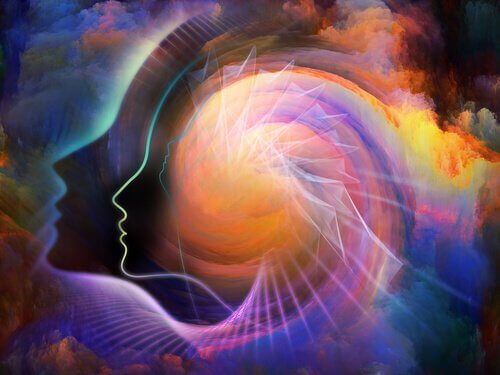Spiritual experiences are thought to be encounters with greater truths or powers related to faith, these spiritual experiences can take many forms, depending on how each interprets this concept, but what happens in the brain during a spiritual, mystical, or religious experience?
The question of what happens in the brain during these situations has been explored several times. In fact, researchers have spent decades intrigued by the importance of spirituality in people’s lives, and have therefore focused on studying what happens in the human brain when people feel deeply spiritually connected.
- You seek the silence of the mountain.
- But you look for it on the outside.
- Is silence accessible to you now.
- In your own being?-Ramana Maharshi-.
The problem is that the concept of? Spirituality? Can it be understood in different ways by each culture and every individual, in that sense, anything anyone can call one?Spiritual experience? It can stimulate the brain in a very complex way, so the task of specifying a brain mechanism for spirituality is not simple.
However, despite the high level of targeting, researchers continue to invest efforts in this direction, among their findings the idea that multiple regions of the brain are involved in the treatment of experiences of union with a higher being.
In addition, another conclusion we find at the end of several studies indicates that individuals participating in a long-term spiritual practice have reduced activity in the right parietal lobe (linked to self-managed approach). to increase, so to speak, disinterest in the brain.
“To experience spirituality every day, we must remember that we are spiritual beings who spend time in a human body. “- Barbara de Angelis-
Lisa Miller, editor-in-chief of the Manual of Psychology and Spirituality at Oxford University Press, has conducted a series of studies on what happens in the brains of people with intense spiritual lives. Their research has shown that these people have cortical thickening in the prefrontal cortex.
Interestingly, Miller claimed that people with chronic depression suffer from cortical thinning in the same area of the brain, which has shaped a hypothesis: spirituality and depression are probably the two sides of the same coin.
Miller and a team of researchers at the Spirituality Mind Body Institute used functional MRI to figure out what happens in people’s brains when they imagine an intense spiritual experience.
They recruited people who wanted to participate in different spiritual and religious practices; in a first experiment, they were asked to remember a personal spiritual experience while scanning their brains; Instruction guides were used to describe a situation in which they felt a strong connection to a higher power or spiritual presence.
Since each had very different spiritual practices, the experiences described in the orientation of the experiment covered a wide range of variability, from a two-way relationship to a higher power?And? A sense of union with nature at the edge of the ocean or on top of a mountain?to “be in an area of intense physical activity (such as sports or yoga), sudden awareness, connectivity or body flotation, meditation or prayer. “
Researchers argue that this relates to a broader and more modern definition of spirituality that can be independent of religiosity. His findings were published in the journal Cerebral Cortex.
Studying the brain activity of volunteers by imagining a personal spiritual experience allowed scientists to identify regions of the brain that appeared to be involved in the treatment of spiritual events.
Miller and his colleagues also compared the brain activity observed when participants described a spiritual experience with observed brain activity, while volunteers imagined stressful or neutral experiences that did not trigger strong emotions.
In doing so, they were able to find a pattern they felt was only observed when it was a spiritual experience; for example, they found that the lower parietal lobe, linked to self-awareness and that of others, reduced activity when participants described a spiritual event, while activity in that region of the brain increased when they thought the event was stressful or emotionally neutral.
Therefore, the team suggests that this region can contribute significantly to the treatment of each other’s perceptions and representations during spiritual experiences, which seems to support the idea that spiritual experiences could help mitigate the effects of stress on mental health.
In this sense, these results indicate different neural mechanisms underlying spiritual experience, and researchers argue that explaining how spiritual experiences are mediated by the brain, from the extension of similar studies to clinical populations, could facilitate certain spiritual practices. work on certain mental health interventions.

